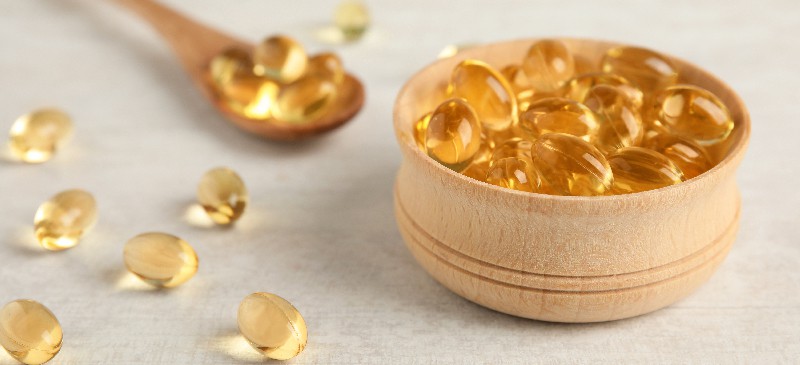This Dr. Axe content is medically reviewed or fact checked to ensure factually accurate information.
With strict editorial sourcing guidelines, we only link to academic research institutions, reputable media sites and, when research is available, medically peer-reviewed studies. Note that the numbers in parentheses (1, 2, etc.) are clickable links to these studies.
The information in our articles is NOT intended to replace a one-on-one relationship with a qualified health care professional and is not intended as medical advice.
This article is based on scientific evidence, written by experts and fact checked by our trained editorial staff. Note that the numbers in parentheses (1, 2, etc.) are clickable links to medically peer-reviewed studies.
Our team includes licensed nutritionists and dietitians, certified health education specialists, as well as certified strength and conditioning specialists, personal trainers and corrective exercise specialists. Our team aims to be not only thorough with its research, but also objective and unbiased.
The information in our articles is NOT intended to replace a one-on-one relationship with a qualified health care professional and is not intended as medical advice.
Omega-3 Supplements: Best Types & What to Look For
February 15, 2023

There’s no doubt that omega-3 fatty acids play a pretty central role in health and wellness. In fact, the list of potential omega-3 benefits ranges from better brain function to decreased inflammation, improved heart health and beyond. But when it comes to getting more omega-3s in your diet, picking out the best omega-3 supplements can get a little tricky.
So which type of supplement is best? And is omega-3 better than fish oil? Here’s what you need to know about omega-3 supplementation, plus what you should look for on your next trip to the grocery store.
Types of Omega-3
There are three types of omega-3 fatty acids, including eicosapentaenoic acid (EPA), docosahexaenoic acid (DHA) and alpha-linolenic acid (ALA). EPA and DHA are the active forms of omega-3 fatty acids in the body and are primarily found in seafood sources, such as fatty fish. ALA, on the other hand, must be converted into EPA or DHA and is primarily found in plant foods like nuts and seeds.
There are also several different omega-3 supplement forms, each of which varies in the way it is processed and produced. The processing method used is especially important, as it can alter the body’s ability to absorb and use each distinct type of omega-3 fatty acid.
The main forms of omega-3 fatty acids include:
- Fish: The omega-3 fatty acids found in whole fish can be found as triglycerides, phospholipids and free fatty acids.
- Fish oil: In most over-the-counter fish oil supplements, the omega-3 fatty acids are found in triglyceride form.
- Processed fish oil: Sometimes fish oil supplements are processed to promote purification, which results in the formation of ethyl esters, a type of fish oil that is not found in nature.
- Reformed triglycerides: The ethyl esters produced in processed fish oil can also be converted back into triglycerides, which are also known as reformed triglycerides.
Although all of these types can supply a multitude of omega-3 benefits, certain types may be better absorbed in the body than others. According to a study published in the European Journal of Clinical Nutrition, supplementing with EPA and DHA in the form of triglycerides was more effective at increasing omega-3 status than supplementation with EPA and DHA in the form of ethyl esters.
What to Look for in Omega-3 Supplements
So what is the best omega-3 supplement on the market? There are several factors to look for to ensure you get the best bang for your buck. Here’s what to keep in mind while browsing the supplement section:
1. Form
Selecting a supplement that contains triglycerides, free fatty acids or phospholipids can maximize absorption and help you get the most from your omega-3 supplement. Steer clear of supplements made from ethyl esters, which are cheaper and easier to manufacture but far less effective than the triglycerides found naturally in whole food sources.
2. Type
DHA and EPA are the active forms of omega-3 fatty acids in the body, and most supplements contain a good mix of the two to help deliver a wide array of benefits. ALA, on the other hand, is found in many plant-based supplements (like vegan omega 3s) and can be converted into DHA or EPA — but only in limited amounts.
3. Dosage
Deciphering the dosage on your omega-3 supplement can be a bit of a challenge. In fact, many supplements boast a high amount of total milligrams of omega-3s but actually contain a much smaller amount of EPA and DHA.
How much omega 3 per day should you take? Although there are no official guidelines for the recommended dosage of omega-3 fatty acids, many organizations recommend getting at least 250–500 milligrams of combined EPA and DHA daily.
4. Freshness
Just like other foods, fish oil capsules can start to go rancid over time, diminishing many of the potential health-promoting properties. In addition to checking the expiration date, the easiest and most effective way to determine freshness is by simply breaking the capsule open and evaluating the taste and smell for rancidity.
5. Purity
When buying fish oil, it’s best to look for products that are certified by third-party programs, such as the International Fish Oil Standards (IFOS) or EuroFins. These organizations have strict standards for purity and can ensure that you get a high-quality product free of contaminants, toxins, heavy metals and oxidation.
6. Reviews
If you’re looking for the best omega-3 supplement brand, make sure to always purchase from a reputable retailer with plenty of customer reviews available and a proven history of delivering high-quality products.
In addition to checking reviews online, you can also search for the best omega-3 supplement on Consumer Reports or other websites that provide unbiased, evidence-based product reviews.
Best Omega-3 Supplements
So what is the best omega-3 supplement? There are plenty of types available, each with unique differences to tailor to your specific palate and preferences. Here are a few of the best omega-3 vitamins on the market:
1. Fish Oil
Derived from the tissues of fatty fish, fish oil supplies a steady stream of both EPA and DHA. It’s also the most readily available and is often very affordable, making it the supplement of choice for most people.
2. Cod Liver Oil
Not only does cod liver oil contain concentrated dose of omega-3 fatty acids in the form of EPA and DHA, but it’s also rich in vitamin A and vitamin D, both of which are vital to nearly every aspect of health.
3. Krill Oil
Krill oil is produced from Atlantic krill, a small, shrimp-like crustacean found primarily in the Southern Ocean. In addition to its omega-3 fatty acid content, krill oil also contains astaxanthin, a powerful carotenoid that can help fight free radical damage and promote better health.
4. Algal Oil
For those who don’t consume fish or seafood, algal oil can be a great alternative to help meet your daily omega-3 fatty acid needs. In fact, it stands out as one of the few plant-based sources of omega-3s that contains both EPA and DHA, with studies showing that the omega-3 fatty acids found in algal oil may be as well-absorbed and tolerated as those in cooked salmon.
5. Flaxseed Oil
Flaxseed oil is one of the best omega-3 fish oil alternatives, especially for those following a vegan or vegetarian diet. It’s loaded with ALA and is available in convenient capsule or soft gel form, making it easier than ever to get your daily dose.
Best vs. Worst Omega-3
When looking for high-quality omega-3 supplements, it’s important to look for products that are made using minimal fillers or added ingredients. Minimally processed omega-3 fish oils produced using triglycerides rather than ethyl esters can help enhance bioavailability and deliver the maximum amount of health benefits.
Not only are low-quality omega-3 sources and supplements less bioavailable, but they’re also more likely to contain contaminants like toxins and heavy metals that could be harmful to health. Plus, certain supplements may also be high in fats but low in the beneficial omega-3 fatty acids that are associated with these vital health benefits.
Best Omega-3 Food Sources
You may be wondering: How can I get omega-3 naturally? As simple as it may sound, the best way to increase consumption of omega-3 fatty acids is to include just a few of the best sources of omega-3 in your daily diet.
So what is the best source of omega-3? Fatty fish, in particular, supply a concentrated amount of EPA and DHA in each serving and are often considered one of the top omega-3 foods. However, there are plenty of plant-based options for those who prefer to skip the seafood instead.
A few of the best omega-3 foods to add into your diet include mackerel, wild-caught salmon, walnuts, chia seeds, natto, herring and sardines.
Risks and Side Effects
Omega-3 fatty acids are absolutely essential to health. While supplements can be an easy and convenient way to up your intake quickly, food sources are always preferable. In addition to supplying plenty of omega-3 fatty acids, these foods also contain many other essential nutrients, including important vitamins, minerals, healthy fats and proteins.
When used as directed, supplementation can be a safe and effective way to increase omega-3 fatty acid consumption quickly. However, there are some omega 3 side effects that may associated with frequent use, including loose stools, upset stomach and belching. The best time to take omega-3 is with food, which can help ease symptoms and maximize absorption.
Before giving children’s omega 3 supplements, speak to your child’s health care provider first. Based on your child’s health, medical history and current medications (if any), you can see if supplementing with omega 3 fatty acids is a good idea.
Possible medication/supplement interactions include: anticoagulant and anti-platelet drugs, herbs and supplements; blood pressure drugs, herbs and supplements; orlistat (Xenical, Alli); contraceptive drugs; and vitamin E.
Final Thoughts
- Omega-3 fatty acids are essential to many aspects of health and have been associated with a variety of health benefits.
- Fish is often considered the best source of omega-3 and can supply a good amount of both EPA and DHA.
- In terms of supplementation, fish oil, krill oil, cod liver oil, algal oil and flaxseed oil are all excellent options to increase your omega-3 fatty acid intake.
- When purchasing supplements, pay close attention to the form, type, dosage, freshness, purity and customer reviews to make sure you get the most bang for your buck.










